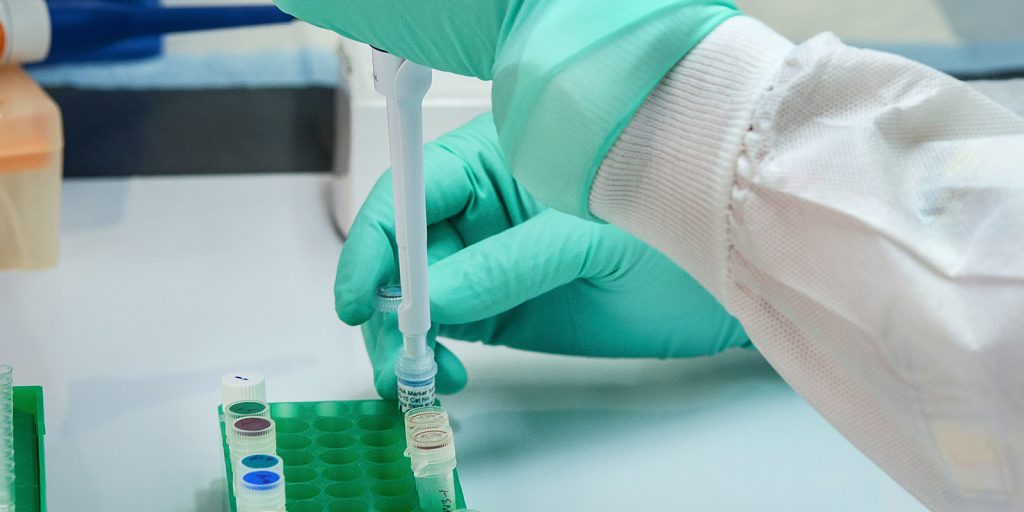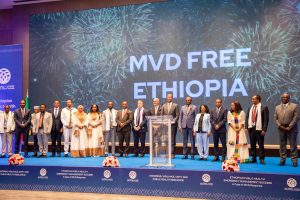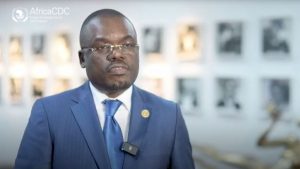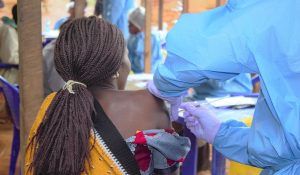The Kinshasa School of Public Health (KSPH) has enrolled 15 students into its Master’s training programme “MSc EpiBiostat” coordinated by Prof. Dr Mashinda Kulimba Désiré. The students are part of a group of 150 “EPI-Biostat Fellows” across Africa, supported by the Africa Centres for Disease Control and Prevention (Africa CDC) and the European & Developing Countries Clinical Trials Partnership (EDCTP). This highly anticipated new training programme will establish an African cohort of epidemiologists and biostatisticians through ten grants supporting institutions in sub-Saharan Africa and Europe. The Congolese Fellows recently started their training and are expected to significantly boost the country’s capacity to monitor and contain disease outbreaks on a provincial, national and regional level.
As one of the beneficiary countries, the Democratic Republic of Congo (DRC) and its neighboring countries are faced with regular outbreaks of diseases such as Ebola, yellow fever, measles, cholera, poliomyelitis, monkey pox and, more recently, COVID-19. Serious funding and skills gaps place a high burden on its health systems, restricting capacity to monitor and contain these outbreaks. The training of the EPI-Biostat Fellows is therefore expected to have a high impact on DRC’s health systems at national and provincial levels. It is also expected to have a cross-border impact on outbreak management, considering the long border shared with several other countries in the region.
Boosting capacity in epidemiology and biostatistics
Africa has faced challenges in responding to public health emergencies over many decades. Epidemiological data are often unavailable or severely limited, and there is a shortage of skilled personnel and systems to collect and analyze available data and efficiently translate them into policy and practice. The COVID-19 pandemic has further exposed the severe shortages in the public health workforce and infrastructure and the inadequate capacity for public health research and emergency response across Africa.
To address this capacity gap, Africa CDC and EDCTP partnered in a €7.5 million initiative to support institutions in Africa and Europe to train a cadre of public health workforce that will boost epidemiological and biostatistical capacity on the African continent through Master’s degree programmes in epidemiology and biostatistics. Following a competitive call for proposals ten consortia, comprising 42 African and 9 European institutions, were supported. The three-year training programmes aim to boost the capacity of National Public Health Institutes, Ministries of Health and other health institutions in Africa to collectively conduct public health research and effectively respond to disease emergencies across the continent. All 150 EPI-Biostat fellows from the ten consortia will have started their training in the course of 2022.
About the fellows
Fifteen students were selected from more than 100 applications for these prestigious Masters fellowships. The students have knowledge and experience in disease surveillance and outbreak response from across the different regions of DRC, one of the largest countries in Africa. The knowledge generated by the programme is expected to benefit the research and policy community in the broader central African region and other francophone countries in sub-Saharan Africa.
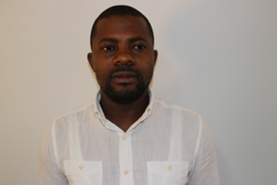
David Ntumba N’Kana
Medical Doctor and Chief Medical Officer of Kowe Health Zone in the provincial division of Haut Katanga. He has experience in primary health care management, tropical disease control programmes (tuberculosis, HIV/AIDS, malaria, neglected tropical diseases) as well as maternal, newborn, child and adolescent health interventions (MNCHS).
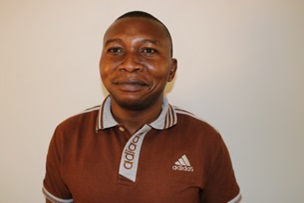
Dr Emmanuel Mapangu Bushabu
Technical Assistant at the Provincial Health Coordination of the Reproduction health program for Kasaï province, former Chief Medical Officer of health zone for five years. He has worked in primary health care management, including planning, resource management, activity monitoring and evaluation, and epidemiological surveillance.
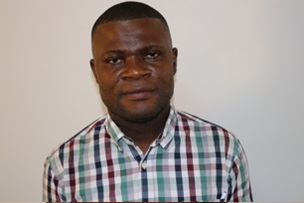
Dr Jacques Lomanga Lomboto
Dr Lomboto is a Chief Medical Officer of Lingomo Health Zone in the Provincial Health Division of Tshuapa, and a former Chief Medical Officer of hospitals in other regions, with experience in disease surveillance and outbreak response.
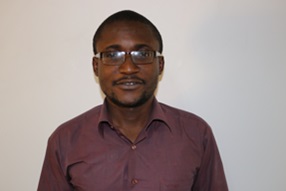
Dr Ebengo Betoko Yannick
Dr Ebengo Betoko Yannick is a Physician at the Kabinda General Reference Hospital, Kinshasa. He has more than five years of experience in primary health care through health education and the care of patients with tuberculosis and HIV/AIDS.
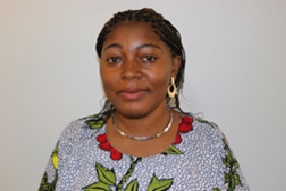
Dr Kikwango Mamu Esther
Dr Kikwango Mamu Esther is a Medical Doctor at the Masina Health Zone working in primary health care monitoring and evaluation activities as well as disease surveillance. She has been deployed on the ground several times as part of the Ebola virus disease (EVD) response with the Emerging Infections Rapid response team.
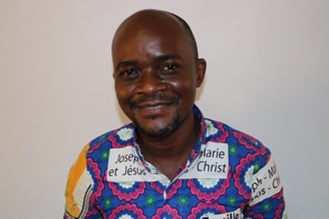
Dr Abedi Maliro Papin
Dr Abedi Maliro Papin is a Medical Doctor and former Director of the General Referral Hospital of Likati. He is Chief Physician of the Viadana Health Zone in the Province of Bas – Uélé, coordinating integrated disease surveillance and response activities, management and communication activities of the expanded programme on immunisation, prevention and management of neglected tropical diseases, HIV/AIDS and malaria.
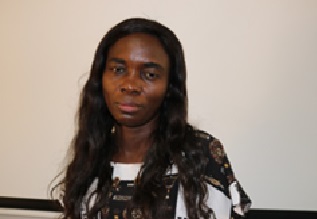
Dr Ndjeka Lohenda Marie-Helene
Dr Ndjeka Lohenda Marie-Helene is a Medical Director of Katako Kombe General Referral Hospital, in Katako Kombe Rural Health Zone, with experience in the field of epidemiological surveillance and maternal health.
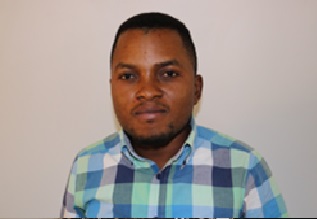
Dr Tresor Mabika
Dr Tresor Mabika is a Medical Director of Kanzi Reference Health Center and member of the Executive Team of the Boma Bungu Rural Health Zone in the city of Boma, where he has been involved in monitoring and evaluation of activities on disease surveillance.
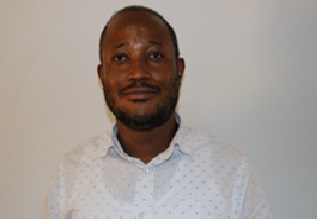
Dr Dende Tshonga Daniel
Dr Dende Tshonga Daniel is a Medical Doctor working at the Provincial Health Division of Tanganyika with experience in routine vaccination and epidemiological surveillance of vaccine-preventable diseases.
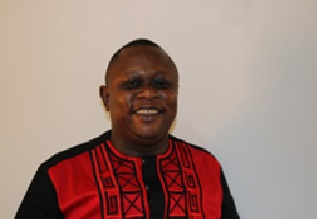
Dr James Ndoko Anzaka
Dr James Ndoko Anzaka is the Chief Medical Officer of Urban-Rural Health Zone of Lisala in the Provincial Division of Mongala. His work has included coordination of all activities of the Health Zone during health emergencies such as outbreaks of measles, cholera, poliomyelitis, yellow fever, monkey pox and recently against COVID-19.

Dr Blandine Kisangani Magayodre
Dr Blandine Kisangani Magayodre is a member of the communication division of the National Nutrition Program (PRONANUT), responsible for the design and development of information tools for behaviour change in nutrition.
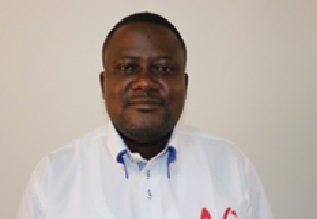
Dr Bokpoy Benza Martin
Dr Bokpoy Benza Martin is a Medical Doctor and former Chief Medical Officer of Rural Health Zone of Bili. Currently, he leads the health zone of Poko in the same province. He has experience in planning and coordination of primary health care, surveillance and response.
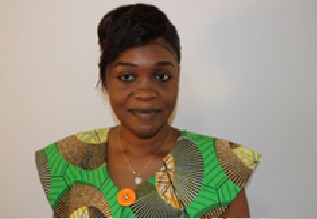
Dr Rachel Bulakitadi Ngakiebe
Dr Rachel Bulakitadi Ngakiebe is a Medical Doctor working at Kokolo Health Zone with four years of clinical experience. She has been involved in response teams against health emergencies such Ebola and COVID-19.
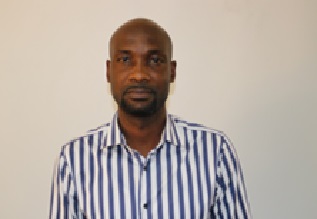
Dr Luhembwe Mwana Ngongo Michel
Dr Luhembwe Mwana Ngongo Michel is the Provincial Coordinator of the National Multisectoral Program for the Fight against AIDS (PNMLS). He has 11 years of professional experience in the health sector and 5 years as the provincial coordinator of the HIV/AIDS programme for Tanganyika.
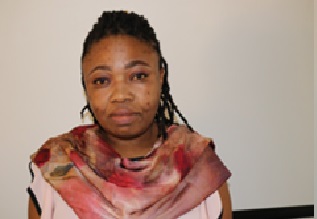
Dr Iranga Barhabula Irene
Dr Iranga Barhabula Irene is a Medical Doctor at the General Reference Hospital of Kabinda (former Tuberculosis Diagnostic Center).. She previously worked as Assistant and Principal Investigator in the randomized Ebola treatment study that led to the approval of EBANGA (Mab114) in North Kivu and Equateur province.
Africa CDC
Africa CDC is a specialized technical institution of the African Union that strengthens the capacity and capability of Africa’s public health institutions as well as partnerships to detect and respond quickly and effectively to disease threats and outbreaks, based on data-driven interventions and programmes. For more information, visit the Africa CDC website https://africacdc.org/
EDCTP
The mission of the European & Developing Countries Clinical Trials Partnership (EDCTP) is to reduce the social and economic burden of poverty-related diseases in developing countries, in particular sub-Saharan Africa, by accelerating the clinical development of effective, safe, accessible, suitable, and affordable medical interventions for HIV/AIDS, tuberculosis, malaria and neglected infectious diseases. EDCTP is supported by the European Union under Horizon 2020, its Framework Programme for Research and Innovation. For more information, visit the EDCTP website http://www.edctp.org/
Further reading
First EDCTP and Africa CDC-supported Epidemiologists and Biostatisticians start their training (12 October 2021)
https://www.edctp.org/news/first-edctp-and-africa-cdc-supported-epidemiologists-and-biostatisticians-start-their-training/
EDCTP and Africa CDC collaborate to develop capacity for outbreak and epidemic response in sub-Saharan Africa (9 April 2020)
https://www.edctp.org/news/edctp-and-africa-cdc-collaborate-to-develop-capacity-for-outbreak-and-epidemic-response-in-sub-saharan-africa/
EDCTP and Africa CDC partner to train highly skilled epidemiologists and biostatisticians in Africa (4 March 2021)
http://www.edctp.org/news/edctp-africa-cdc-partner-train-highly-skilled-epidemiologists-biostatisticians-africa/ Call for proposals: Capacity development for disease outbreak and epidemic response in sub-Saharan Africa, in collaboration with Africa CDC – 2020 (Closed)
https://www.edctp.org/call/capacity-development-for-disease-outbreak-and-epidemic-response-in-sub-saharan-africa-in-collaboration-with-africa-cdc/

